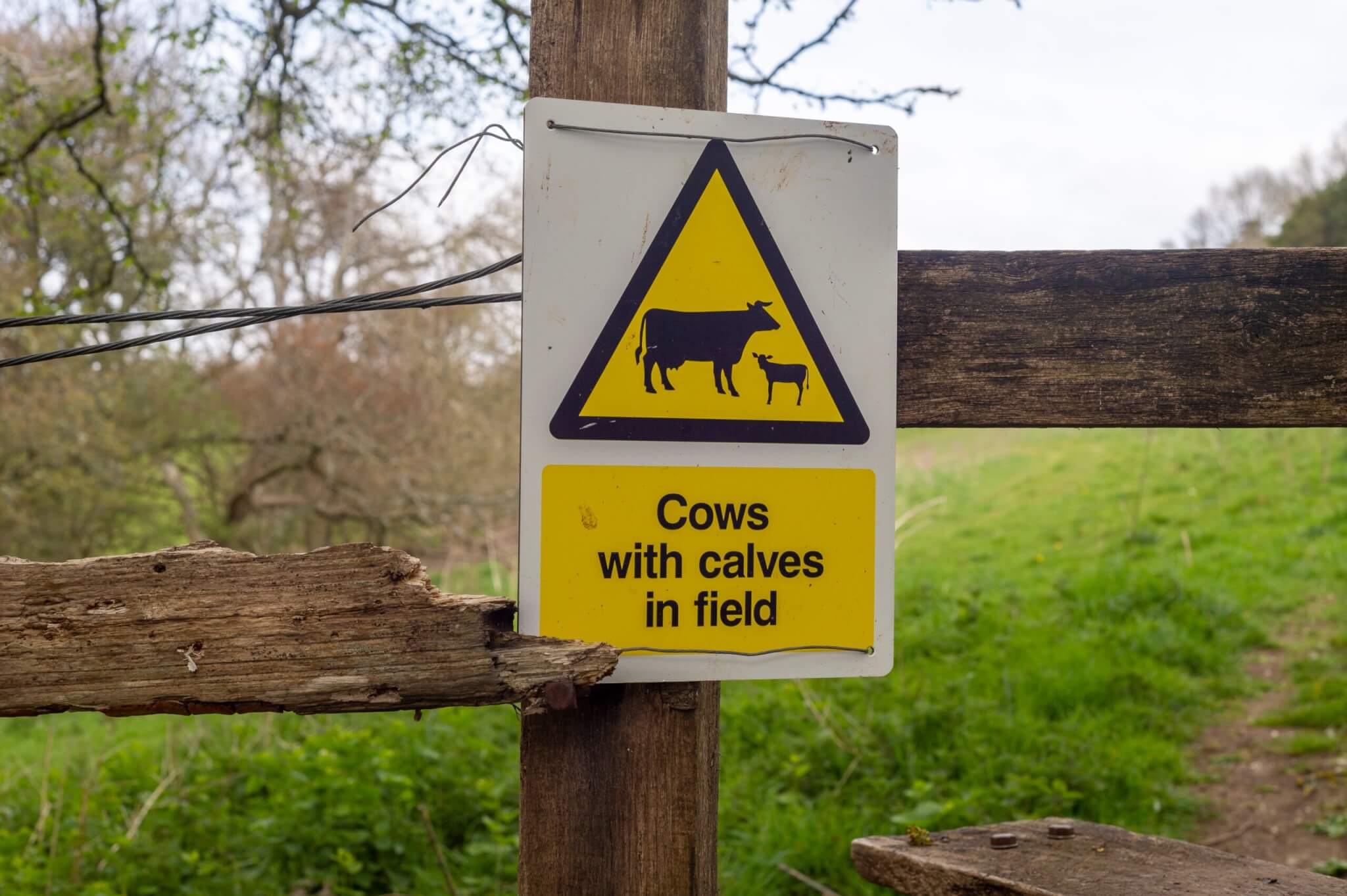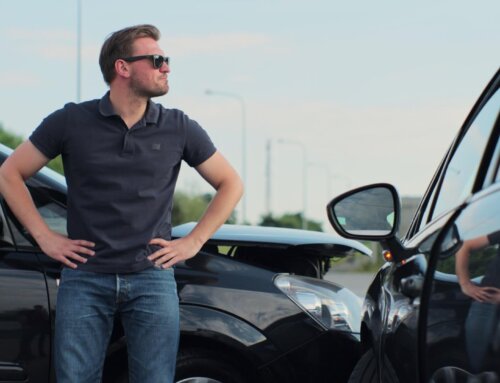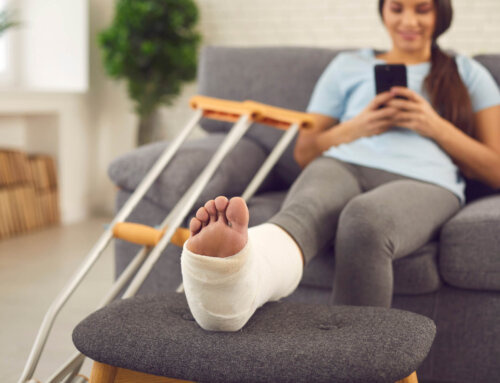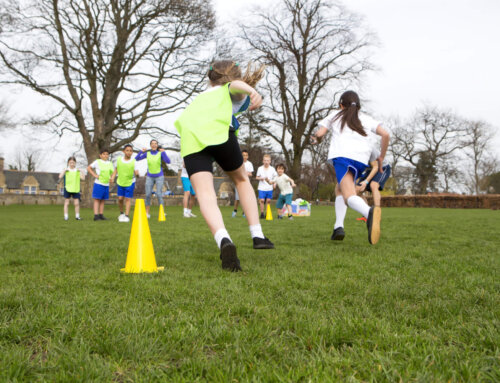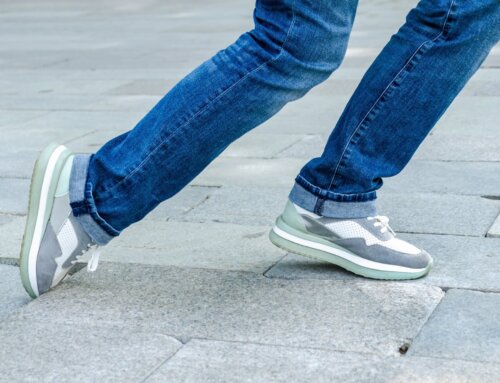“Animals are such agreeable friends―they ask no questions; they pass no criticisms.” ― George Eliot Mr. Gilfil’s Love Story,’ Scenes of Clerical Life, 1857
In the UK, we are fortunate not to have any exotically dangerous animals roaming wild or lurking in our homes. If we go to the bathroom at a friend’s house, we would be highly unlucky to get bitten on the posterior by a venomous spider, as happens occasionally in Australia.
Nevertheless, despite our native animals being, in the main, ‘agreeable friends,’ people suffer injuries in animal attacks every day in the UK.
What can you do if, through no fault of your own, you find yourself the victim of an animal bite or animal attack injury?
We provide the answer below, but first, let’s look at some animal attack types you may be unlucky enough to encounter.
Dog bite claims
Dog bite attacks are the most common animal injury claim in the UK. It is hardly surprising when you consider that approximately 13 million dogs of all sizes and shapes are in homes nationwide.
Most of our beloved doggie friends will never bite or attack anyone. However, the sheer volume of dogs in the country dictates that even a relatively small percentage of hounds not correctly looked after constitutes a sizeable enough number of potentially dangerous or reactive canines, which could, given the wrong set of circumstances, attack and injure someone.
Animals classified as dangerous dogs can be especially problematic if not adequately controlled, as required by the Dangerous Dogs Act 1991.
In recent years, there have been many highly publicised dog bite attacks caused by American XL Bully Dogs, and incidents of XL Bully attacks continue to make national headlines even now, almost a year after the Bully was added to the list of dangerous dogs under the 1991 Act.
Data from NHS Digital reveals a steady increase in hospital admissions for dog bites over the last 10 years, with 9,277 in 2022-23. This figure represents a 47% increase from ten years ago.
We have written more about claiming dog bite compensation in our blog, “Will banning American Bully XLs reduce the number of dog bite attacks?” and on our dedicated “Dog Bite” webpage.
The Animals Act 1971 makes dog owners responsible for their animal’s behaviour and the consequences if they don’t keep their dogs under control.
If you suffer personal injury in a dog bite attack, you may be able to claim compensation against the owner of the animal.
Many owners have specific pet insurance. If they don’t, their household insurance policy may cover them if a dog bite injury claim is brought against them.
If no insurance policy covers a dog bite attack claim, a claim for compensation to the Criminal Injuries Compensation Authority may be possible.
However, be warned that bringing a CICA claim after a dog attack can be more complicated than pursuing a civil personal injury claim, and it is only available if you can prove that the dog’s attack was deliberate. In other words, either the attack occurred because the owner intended the dog to attack you or because they failed to properly control the dog when they knew it was dangerous to other people.
If a dog has bitten you and you want to claim but are unsure whether you have a valid claim, contact one of our specialist personal injury solicitors here at Mooneerams Solicitors.
When you bring a claim for personal injury compensation following an animal attack, you have three years to start your claim. Be warned: If you leave it too late, you cannot claim.
Cow attack compensation claims
If an article in the Guardian in September 2024 is to be believed, cattle may be Britain’s most deadly large animals. Statistics from the HSE show that cattle were responsible for 22 deaths between March 2019 and March 2023. Overall, between 2015 and 2021, there were 257 reported incidents (fatalities, other injuries, and ‘near misses’) involving cattle. The Daily Mirror recently carried an article suggesting there may be as many as 3000 to 4000 cattle attacks on people every year.
The majority of fatal accidents and incidents causing serious injury are where members of the public get trampled by cattle when using public footpaths or commonly used rights of way.
Most incidents happen when a dog accompanies the walker.
Anyone who has walked a dog through a field of cows will concur that it can be an extremely unnerving experience, especially when calves are present in the herd.
In a claim for compensation first reported in the Daily Mirror, Shirley McKaskie won significant compensation when she was seriously injured by cattle whilst taking a deviation over a well-worn unofficial path whilst walking her dog across fields in Cumbria.
The farmer who owned the land was found liable under the Occupiers Liability Act 1957 and the Animals Act 1971 for failing to take reasonable care for Mrs McKaskie’s safety because ‘aggressiveness’ was a characteristic of cows with young calves, which the farmer knew. The farmer also knew that people used Mrs McKaskie’s route, even though it was a deviation from the designated footpath.
Farm employees who suffer injury while handling cattle (or other animals) during their employment may have a right to bring an accident at work claim.
Employers have a duty to protect the safety of their employees while they are at work. Those who fail to do so are legally obliged to compensate employees who are injured as a result of their negligence.
Another area where cows have caused cause personal injury is when they have escaped from farm property onto the road into the path of vehicles. If the cow was on the road due to the farmer’s negligent act in not ensuring that the animals were properly secured, then it may be possible to bring a claim against the farmer for any personal injury that ensues to a driver who is unfortunate enough to come into collision with a cow that wanders into his or her path.
In Williams v Hawkes, the court held that the owner of a steer that had escaped from a farm after being ‘spooked’ was liable for the severe personal injuries sustained by the driver of a vehicle that came into collision with the steer.
The court paid particular attention to the Animals Act 1971 and a subsection of that act ‘in that the damage had been caused by a characteristic of the species found only in particular circumstances: the steer had acted in accordance with the propensity of Charolais cattle to behave unpredictably to adverse stimuli.’
Horse Riding Injury Claims: Injuries Caused by Horses
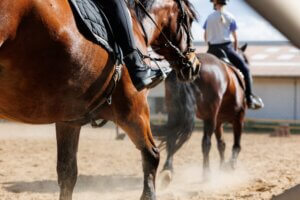
If a horse rider suffers injury due to being thrown from the horse, was it a spontaneous and unprovoked action by the animal? If it was, then you may be unable to make a successful claim.
However, if another person’s actions caused the horse’s reaction, you may have reasonable prospects of making a claim.
Here are some of the ways that horse or equestrian accidents giving rise to compensation claims may take place:
Riding schools
Where injury occurs as a result of:
- an instructor who is not suitably qualified or sufficiently experienced
- mismanagement or by providing the rider with incorrectly fitted riding hats or body protection,
there will potentially be a claim against the proprietors of the riding school should an accident occur due to a fall from a horse during a riding lesson or other group activity organised by the school.
Falls from horses are the most common type of riding accident.
Equally, if the horse the pupil is provided with has a temperament unsuitable for the individual’s horse skills and a fall occurs because the rider lacks the experience to control it properly, that could also give rise to a claim.
- Stables – If horses are not appropriately controlled in the confines of a stable or other enclosure at the riding school or stud, there is a risk of someone in the vicinity getting injured from being crushed.
- Accidents at work– those who work with horses – stable hands being an obvious example – are owed a duty of care from their employer to ensure that they are provided with a safe working environment. Suppose the employer fails in that duty and a horse injures an employee. In that case, there would be reasonable prospects of the employee being able to bring a claim against the employer for injuries and other losses resulting from the employer’s breach of duty or negligence.
You can find more in depth information about Horse Riding Accident Claims on our dedicated webpage.
Other types of animal attack injury claims
Thankfully, animal attack injuries sustained at zoos are few and far between. Still, by the nature of the vast and varied types of animals kept in zoos, the consequences can be fatal if something goes wrong.
The people most at risk in a zoo environment are those who work with the animals; the keepers, although other staff members may also be at risk, should, for instance, a dangerous animal escape its enclosure.
The tragic death of tiger keeper Rosa King in 2017 highlighted the dangers faced by the keepers of dangerous animals daily.
While zoo keepers will accept the risks of working close to dangerous animals, they are still entitled to expect their employer to provide them with a safe working environment.
Should a keeper suffer injury because of faulty or ageing cages or fences that allow animals to escape and attack a keeper, the zoo’s owners may be liable to pay damages for compensation in the event of a workplace accident claim being brought by the injured employee or next of kin, in the event of a fatal accident.
Other types of accidents caused by wild animals occur when animals, such as deer, collide with vehicles on the road. No one owns the deer or other wild animal, so there is no one to claim against.
If, however, a deer escapes from an enclosure or wildlife park and strays onto the road, and you collide with it, there is a potential claim to be made against the enclosure owner for failing to contain the animal within the owner’s property.
Summary
Let’s summarise some of the main points to take away from this article:
- Dog owners should not take their responsibilities lightly. The Dangerous Dogs Act 1991 does not just apply to the ownership or banning of specific breeds of dog. It applies to all dog owners to the extent that Section 3 of the act places a duty on an owner or a person in charge to ensure that their dog is kept under control in a public place.
- If a wild animal injures you, whether because you collide with it on the road or are bitten whilst out for a walk in a public space, it’s unlikely you will be able to claim compensation.
- If you suffer injury from a collision on the road with an animal owned by someone else, e.g., a cow, pig, horse, sheep, or dog, you may be able to claim compensation from the owner of the animal if they can be traced and if you can prove they were negligent in causing or permitting the animal to stray onto the road.
- If animals have been permitted to stray from their enclosures in a zoo or wildlife park and attack, bite or trample you, it’s your right to bring an animal attack claim against the owners of the establishment.
- If you are walking with your dogs in fields where there are cows with calves (or bulls), we suggest you turn around and find another route if possible!
If you are unfortunate enough to get trampled by them (and you survive), don’t automatically expect to be able to make a compensation claim. The case of Mrs McCaskie, who successfully recovered compensation from the farmer whose cows trampled her, was decided on quite narrow facts, which may not necessarily apply to your case.
Should you suffer injury in an accident of this type, seek advice from a specialist firm of personal injury solicitors who are preferably, like Mooneerams, also experts in dealing with animal injury claims.
- Where an employer’s business is animal-centric, such as farming, horse riding, equestrian schools, stables, stud farms, wildlife parks or zoos, employers owe a duty of care to their employees and a duty to provide them with a safe working environment.
When an employee is attacked or otherwise injured by one of the animals while carrying out their work duties, the employer may be liable to compensate the employee.
Compensation claims for animal attacks, animal bites or where an animal has strayed into the road in front of you as a driver, passenger, cyclist, motorcyclist or horse rider, injuring you, are invariably complex cases. You should, therefore, seek legal advice about making an animal injury claim as soon after the incident as possible.
Call Mooneerams on 029 2199 1927. Mooneerams handle animal attack or bite claims on a No Win No Fee basis, meaning if you don’t win your claim, you’ll usually have nothing to pay.
Posted in Personal Injury Claims

